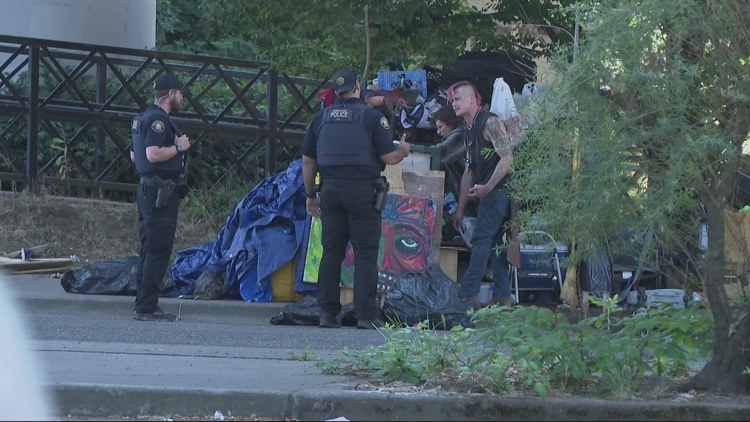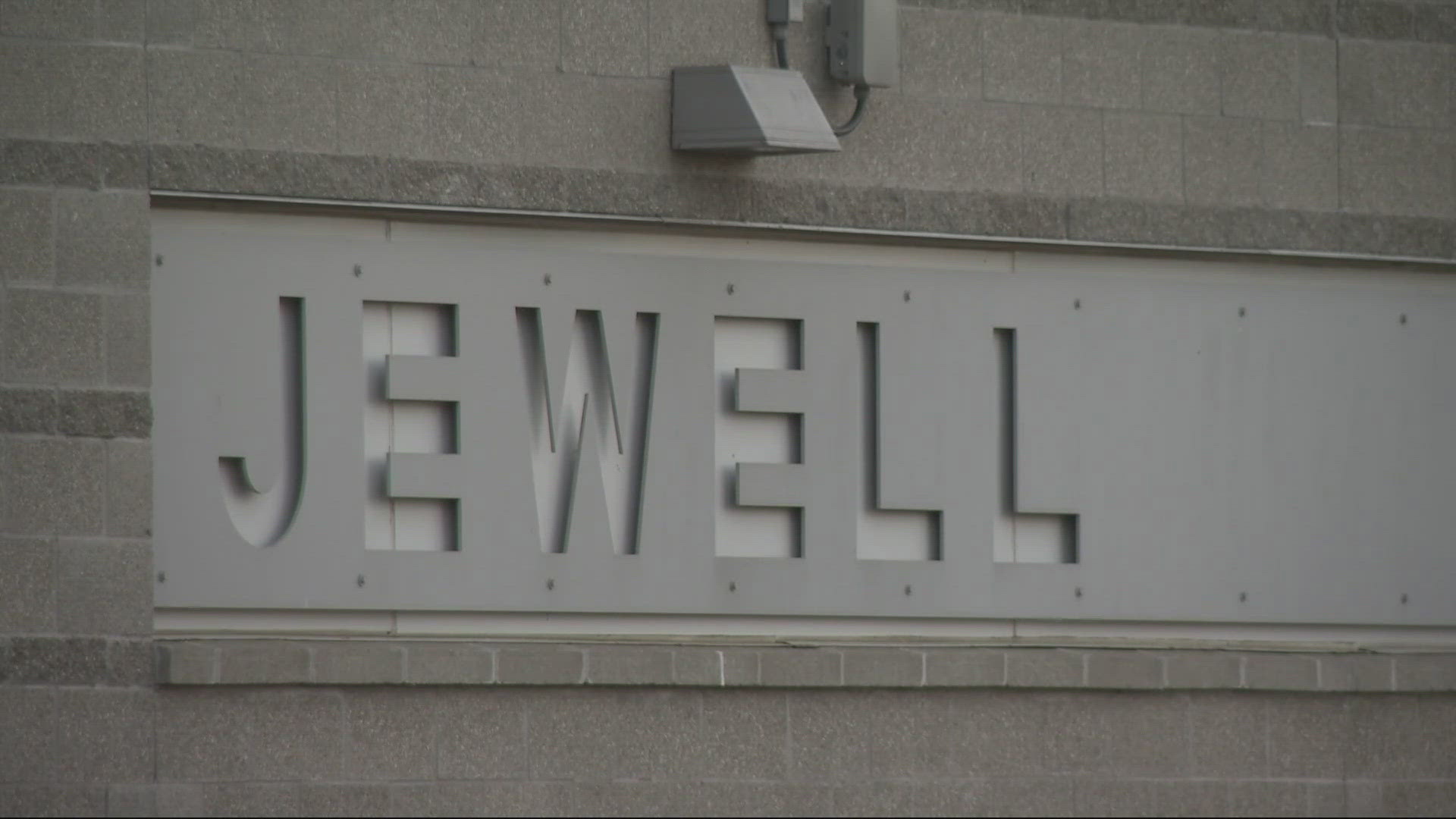PORTLAND, Ore. — Oregon's experiment with drug decriminalization officially ended Sunday when a new misdemeanor charge went into effect for people caught using or possessing hard drugs. The partial rollback of Measure 110 has been accompanied by the creation of new drug deflection programs that offer offenders the opportunity to avoid jail time if they accept treatment.
The deflection programs are administered on a county-by-county basis, and Multnomah, Washington and Clackamas counties have all been aiming to launch their programs to coincide with the arrival of recriminalization on Sunday, making deflection immediately available across the Portland metro area.
The county programs share some rules, such as disqualifying anyone who is already on probation or has a prior conviction for a violent felony, domestic violence or child abuse, but the specifics of the enforcement and deflection processes vary between the counties. Here's a rundown of how things will work in each of the Portland metro area counties:
Multnomah County
People caught with hard drugs in Multnomah County will be handcuffed while officers check to see if they have any outstanding warrants, according to Portland police. If they don't have any, they may be offered deflection.
The county is creating a deflection center where law enforcement can bring people to get them immediately connected with treatment, but it won't be ready in time, so the county plans to use a "mobile outreach" strategy during the initial weeks. Support staff will be dispatched to meet up with police on drug calls and offer treatment to offenders in the field.
The person will likely remain in handcuffs until the specialist arrives; the goal is for that time period to be half an hour or less. Once they arrive, police will leave and the person who accepted deflection will have 30 days to begin treatment. If they're caught again during that time, they'll go straight to jail.
The county's deflection plan also places Portland Fire & Rescue in a key role, especially during the mobile outreach period. The agency's Community Health Assess and Treat (CHAT) overdose response team will be dispatched along with outreach workers to overdose cases, with the goal of providing relief that may help convince the overdose victim to accept treatment.
Due to staffing issues, deflection in Multnomah County will initially only be offered to people caught with drugs from 8 a.m. to 8 p.m. on weekdays. Anyone arrested outside of those hours will be cited or taken to jail with no option to deflect.
Portland Mayor Ted Wheeler was unenthusiastic about the mobile outreach plan when briefed by the county earlier this week, and said that Portland police would not hesitate to begin arresting and booking drug offenders if they county can't get its full drug deflection program up and running quickly.
Washington County
Washington County has built its deflection program around a mobile outreach strategy from the start, although it does still intend to add drop-off locations in the future. In a recent interview with KGW, Washington County District Attorney Kevin Barton likened the county's approach to diversion programs such as the county's DUII Diversion option.
But while diversion programs are run through the courts, the deflection program will intervene much earlier in the process, giving people the option to avoid a courtroom altogether if they accept treatment. Barton said the approach is modeled on similar programs from other counties in Oregon and Washington state.
The mechanics are similar to how Multnomah County's program will initially function; officers confronting people using drugs can choose to issue a misdemeanor citation or offer deflection. If the person accepts, the officers can call in a peer support specialist to meet the person as fast as possible in the field.
The deflection program lasts six months, and people are only eligible for it once per year, according to a county FAQ — anyone who fails the program or is caught with hard drugs a second time within in a year will be sent into the court system.
Clackamas County
Clackamas County's deflection program is an adaptation of an existing program that the county has been using for several years, where offenders are sent to community court to be connected to treatment. Community court is reserved for low-level crimes, allowing offenders to complete programs that include community service to avoid going to regular circuit court.
The heavy involvement of community court and the Clackamas County District Attorney's Office county initially landed the county in hot water with the Oregon Criminal Justice Commission when it submitted its plan for approval, amid concerns that the program was too much like diversion rather than deflection, but the county was ultimately able to gain state approval.
When a person is arrested for drug possession in Clackamas County they will be given a community court date but will not be charged with a crime if the Clackamas County District Attorney's Office reviews their case and concludes that they're eligible for deflection. Program staff will contact the person before their community court date to connect them with treatment resources. If staff can't get in touch, the person will be offered resources at their community court appearance.
If a person is ineligible or unsuccessful with deflection, they'll still have a chance to enter a "conditional discharge" through community court, according to a news release from the county, where the court will assign specific terms that the person must meet for at least 120 days. If the person also rejects or fails that process, they'll wind up in regular circuit court.
A Clackamas County FAQ states that a person can only be eligible for deflection "once," although it also states that if a person fails deflection, the resulting criminal citation will be expunged from their record. It's unclear if they'd be eligible for deflection again after that.



